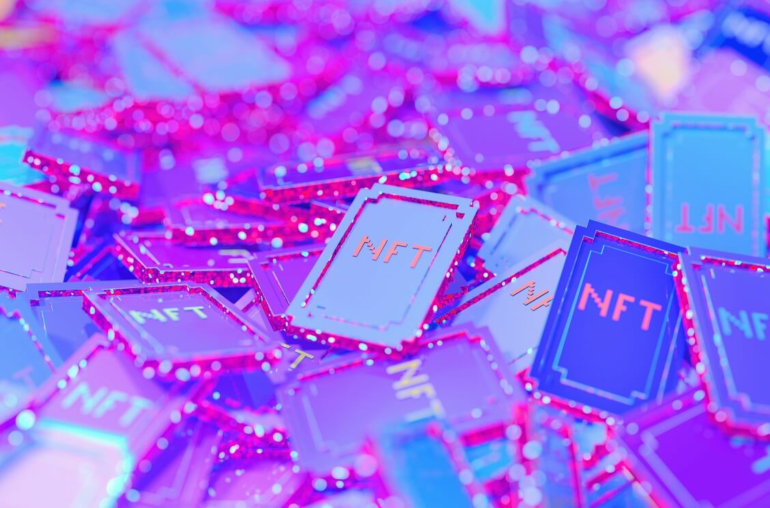GameStop’s NFT marketplace crossed the $5 million trading volume milestone on Monday. At a time when the overall NFT market declined by -60% in Q3 from already decimated Q2, is this the beginning of a trend?
It turns out, there is a secret ingredient to GameStop marketplace success – blockchain gaming powered by ImmutableX.
Although ImmutableX (IMX) became popular after TikTok picked it for its Top Moments NFTs, the network already had a good reputation. The Australian team behind NFT trading card game Gods Unchained stepped up beyond blockchain gaming into platform development.
James Ferguson, Robbie Ferguson, and Alex Connolly launched ImmutableX in 2018 as a super cheap (near-zero gas fee) and fast protocol to process NFT transactions. As Ethereum’s layer 2 scaling network, ImmutableX can handle the bulk of blockchain assets, such as either ERC-20 (regular crypto tokens) or ERC-721 tokens (NFTs).
In short, ImmutableX is focused on making blockchain gaming accessible for both players and game developers. Because blockchain gaming revolves around NFTs, as tradable and playable in-game assets, ImmutableX made it convenient and affordable to do so without getting drained by ETH gas fees.
After having announced its partnership with GameStop in February, the ImmutableX-powered NFT marketplace finally went online on October 31st. Effectively, this is GameStop’s entry into the growing Web3 ecosystem, dominated by blockchain games/metaverse.
Since then, in just a single week, GameStop traded over $5 million worth of volume on IMX. Overall, ImmutableX minted over 52 million NFTs this year, facilitating over 8.9 million NFT trades. Although Axie Infinity paved the road for blockchain gaming, here are some of the rising stars available, or soon to be, on GameStop:
With its non-custodial browser wallet, GameStop is going full Web3. The gambit is simple. According to GlobalData forecast, the metaverse market size should reach $996.42 billion by 2030. Even without accounting for Web3 games, in-game spending by 2025 should reach 74.4 billion.
For gamers, this represents a unique opportunity that hasn’t existed before. Outside of e-sports and Twitch streaming, there was no way to have a steady income directly from gaming. After all, traditional games have their marketplaces locked to accounts.
Even if one were to spend $10,000 on those in-game assets, they remain untradeable and valuable only to the account holder. Blockchain gaming flips that economy around, making all in-game assets publicly tradeable, from NFTs to native utility and governance tokens. In other words, Web3 games transfer the in-game asset ownership to players.
Join our Telegram group and never miss a breaking digital asset story.
As the company’s next move, GameStop should partner with the FTX exchange. However, with a hot war brewing between Binance and FTX, there may be a change of plans. In fact, Binance just might acquire FTX altogether. In the meantime, GME stock has remained above negative returns in the last 30 days, at +1.18%.
Year-to-date, GME stock lost -32.87% of its value, now trading at $25.66 per share. This is a -239% decline from its all-time high of $86.88 in January 2021. Presently, GME open interest (OI) is higher than average, having increased by 2.1% on a daily basis, suggesting a continuation of its meme stock trading status.
Do you think blockchain games will be too monetized to be appealing? Let us know in the comments below.
General Disclaimer: The Tokenist is an independent media publication. All information shared on The Tokenist, including its associated social media channels, is provided for informational purposes only. Nothing shared by The Tokenist should be considered investment advice. The Tokenist does not provide investment advice. While we do our best to ensure accuracy, The Tokenist makes no guarantee that all information contained on the site will be accurate. If you have any questions whatsoever, consult a licensed financial advisor.
Advertising Disclosure: Some offers on this page may promote affiliates, which means The Tokenist earns a commission if you purchase products or services through the links provided. All opinions expressed here are the author’s and not of any other entity. The content at The Tokenist has not been endorsed by any entity mentioned at the site. For additional information, please review our full advertising disclosure.


